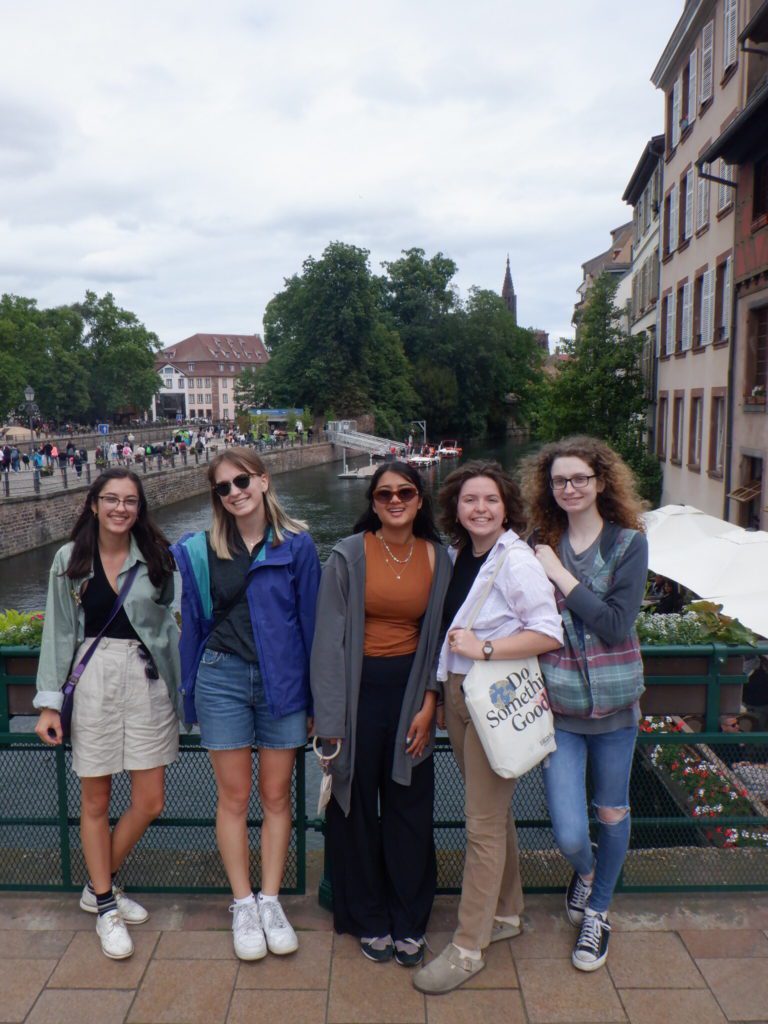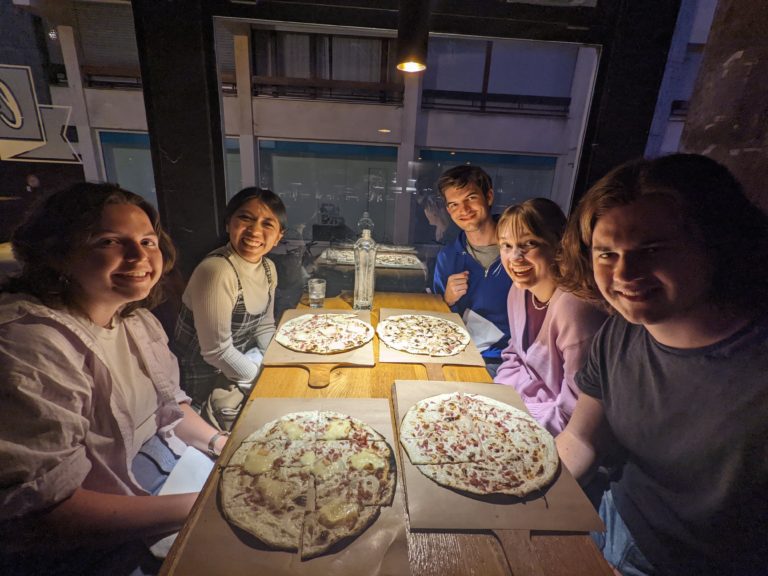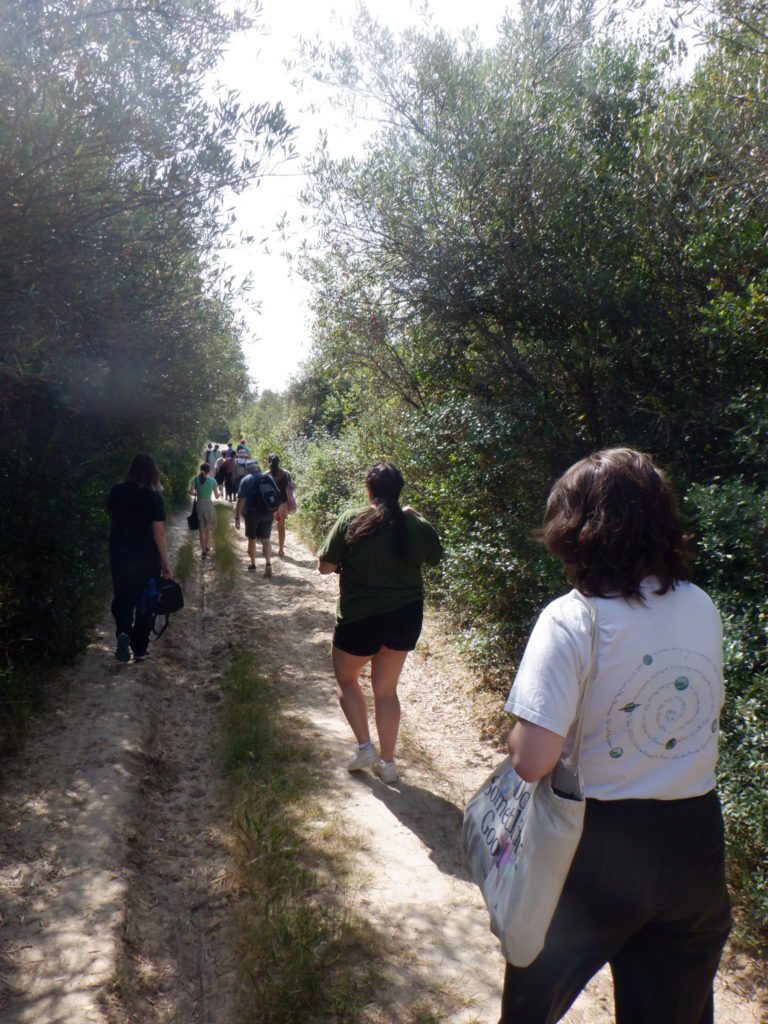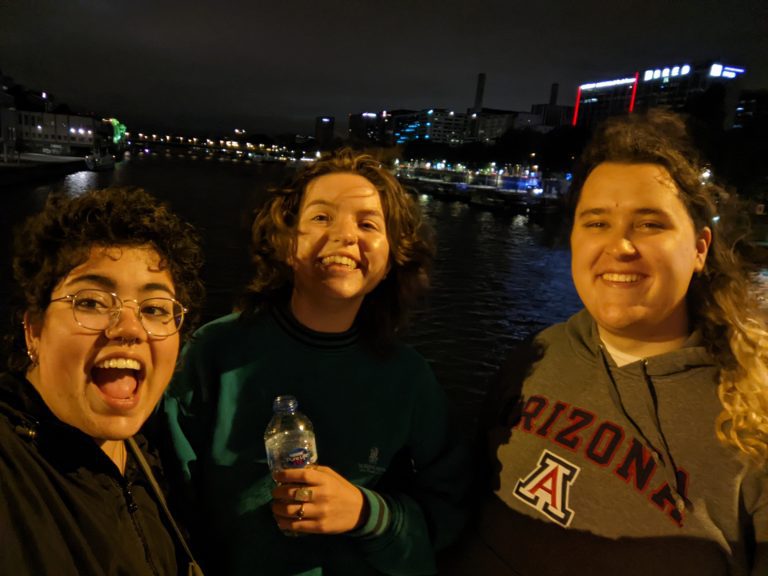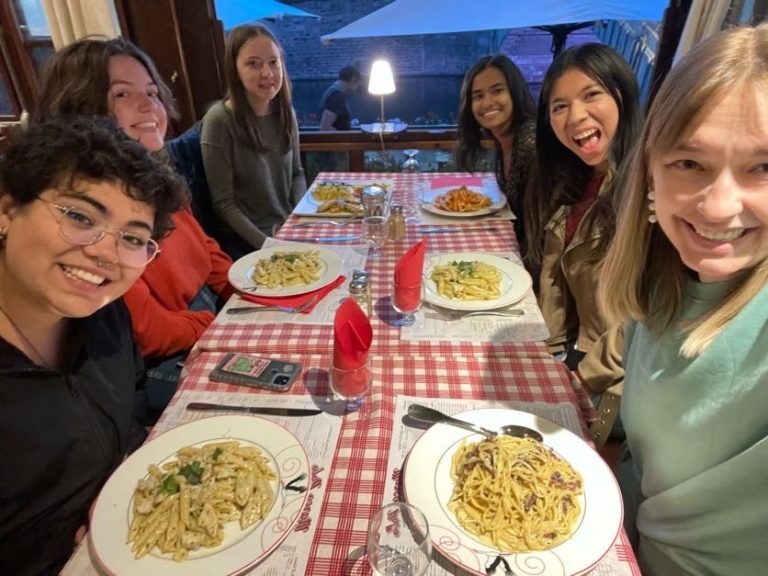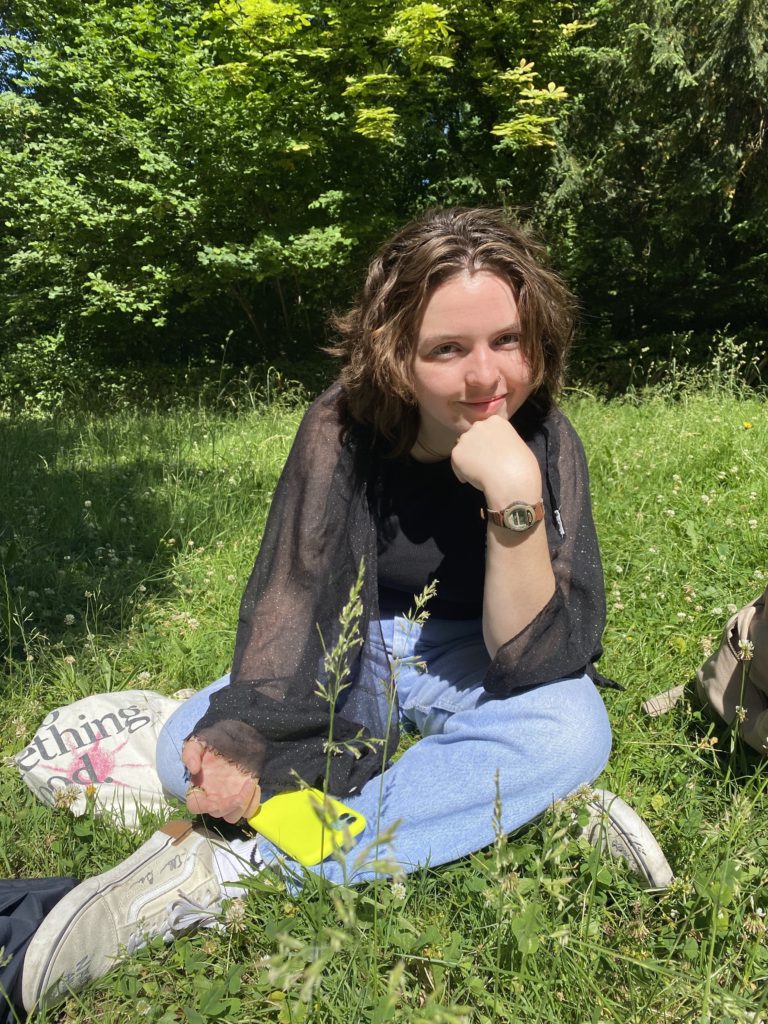
Heather Jensen is a Class of 2020 Flinn Scholar attending the University of Arizona, where she is studying neuroscience and Arabic. In June, Jensen participated in a two-week group summer seminar in France where she traveled with her class from Paris to Strasbourg to Montpellier, studying water sustainability, enjoying long conversations with her fellow Scholars and engaging with the world around her.
One night in Paris, I and a few other Scholars sat down at the outdoor plaza of a cafe. We ordered espressos and café au lait and pocketed the provided sugar cubes for later. We drank our coffees and talked, catching up after some months of distance, gently complaining about the perpetual STEM vs. humanities student rivalry and dissecting the differences between our respective freshman year COVID experiences. Just nearby, a concert was ending; audience members swarmed out of the venue, their flow directed by traffic cops. Across the street, the Seine rushed along, dark and glittering.
It was the beginning of a two-week trip through France, transporting us from Paris to Strasbourg to Montpellier, urban settings to… well, less urban. Over that time period, there were many more long conversations, whether in a café or lying in the grass of a sunny park. There were museum wanders and long bike rides and new experiences. Regardless of prior experience with international travel, everyone found something of interest to them, and we naturally found our rhythm, breaking into smaller and bigger groups as needed. We rode on innumerable metros, buses, trams, and trains, took group dinners inside stone buildings and purple-lit modern restaurants, tromped around wetlands and rivers and lagoons, attended lectures with experts in water sustainability, and ended the day with plenty of time to wander. With a meal stipend and accommodations provided by the Flinn Foundation, we had enough resources to try local restaurants and visit cultural attractions of our own choosing almost daily. It was exactly what it sounds like: a remarkable and marvelous privilege that, like most parts of the Flinn scholarship, changes your life.
For me, this was one of my first in-person Flinn events since high school. Because simultaneously-timed events are unfortunately attracted to me like a moth to a light, this was the first time I’d seen many folks in my class since the start of the pandemic. In the interim, most people had moved to new cities, changed majors and career paths, created new friend groups, or otherwise settled into themselves. I had shaved off 24 inches of hair and since grown it out. Others had started new relationships, ended old ones. To see the sharp contrast between our high school selves and the semi-adults we all now are, mingling once again thousands of miles from home—it reminded me, vaguely, of holiday dinners spent at the cousins’ table. Here we all were, aged out of our memories of each other, yet sharing in experiences as if nothing had really changed.
This is one of the remarkable facets of travel, whether you’re solo or with a group, studying or relaxing. We are used to our home and the people in it. Generally, our lives are illuminated by one specific angle of light. Everything we do is ordinary and even the possibility of differing from our patterns—to linger at a café and relax for hours, purchasing very little, rebuking any attempts at productivity, as apparently is the European way—rarely occurs to us.
There are things we love about the people we love that we do not even recognize until we’re far away. And there are parts of ourselves hidden because they feel ordinary; sometimes, you don’t realize you enjoy or dislike something until it is no longer there in front of you. I didn’t know how much I’d miss cooking, my affectionately chipped plates and bruised pans, until I was without it; didn’t know how much I enjoyed a long walk at night until I could wander after dark in the relative safety of Paris, Strasbourg, and Montpellier; didn’t know I could handle language barriers, delayed flights, and the occasional food poisoning until I had.
With each experience abroad, I had to rework my perspective of myself and of the people around me, as if perpetually undoing and redoing a row of stitches. Though ancient wonders and history museums and local cuisine is of course an essential part of traveling, the most enchanting part of studying abroad is what a new place allows us to do with ourselves. We engage with the world around us and in turn watch our perspective on ourselves shift, as subtle as the sun moving overhead.
The 2023 Flinn Scholarship application for Arizona high-school seniors is now open. Learn more from the sections below and apply by Oct. 19:
